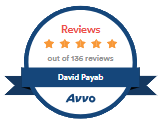Every employee knows that the difference between your salary or wages and the amount you actually take home in your paycheck can be huge.
Some paycheck deductions, such as income tax withholding, Social Security and Medicare payments, and premiums for health insurance and other voluntary benefits, are perfectly legal. But some employers take deductions that are not legal.
In California, employers may not deduct from employee paychecks for a variety of expenses, from uniforms and tools to breakage and cash shortages.
What cannot be deducted from California paychecks?
In California, the basic rule is that the employer has to pay for all of the normal costs of doing business. It may not pass these expenses along to the employee. Expenses that fall into this category – and therefore may not be deducted from employee paychecks, including:
Business expenses – An employee must be reimbursed for any costs incurred or losses suffered in doing the job. An employer may not deduct these business expenses from an employee’s paycheck. Examples include parking and tolls (when driving on company business), travel, business meals, gifts for clients, and so on.
Breakage and cash shortages – An employer cannot charge an employee for losses caused by the employee’s carelessness. For example, if an employee drops a dish, damages a piece of furniture, or experiences a register shortfall, the employer may not deduct the value of that loss or shortage. These losses are considered part of doing business.
What other items cannot be deducted from California paychecks?
Tools and equipment. The employer must either provide or reimburse the employee for items the employee must purchase to do the job, such as a vehicle, smartphone, hand tools, or uniform.
Bonding and licensing – If an employee must be bonded or licensed to work for the employer, the employer must pay that cost. Similarly, if the employer requires employees to submit fingerprints, a photograph, or other identifying information, it must pay the cost of those items as well. An employee who is required to take a medical exam as a condition of employment is entitled to reimbursement for that cost, too.
Tips – In California, tips belong to the employee. Employers may not take a “tip credit” by paying tipped employers a lower minimum wage and counting tips towards its own wage obligations. Tip pooling or sharing is allowed, but the employer (and its managers) may not take any part of the tip pool.
David Payab, Esq. from The Law Offices of Payab & Associates can be reached @ (800) 401-4466 or by visiting http://payablaw.com

































